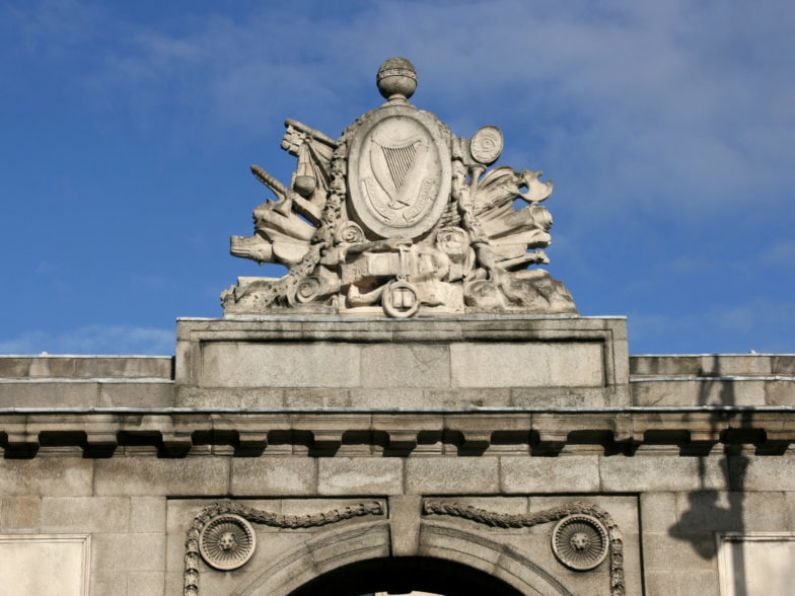The State has appealed a High Court ruling that quashed a District Court judge's refusal to hear the cases of three people accused of publishing information online identifying the teenage boys who murdered Ana Kriegel in 2018.
The three, who are accused of breaching publication restrictions under the Children Act 2001, won a High Court challenge in July of last year over how a District Court judge refused jurisdiction in the matters.
The three accused were among 10 people charged with similar breaches of the Children Act who were initially told by Judge Brian O'Shea in October 2020 that jurisdiction was accepted and that their matters could be heard at the District Court level.
However, when the matter returned to the District Court on December 2nd, 2020, Judge John Hughes deemed the offences as being too serious for the District Court and ruled that they should be sent to the higher Circuit Court, where penalties upon conviction can be more severe.
The three then brought a successful judicial review to the High Court challenging the decision, where Ms Justice Siobhán Phelan decided that the matter should be sent back to the lower court for "reconsideration".
The teenagers known as Boys A and B were both convicted of the murder of Ana Kriegel following a trial in 2019.
The 14-year-old had been murdered at a disused farmhouse in Lucan, Co Dublin, in May 2018, when the boys were both 13 years old. They could not be identified by order of the trial judge and under a provision of the Children Act that prohibits the identification of minors accused or convicted of a criminal offence.
Boy A and Boy B
Boy A was sentenced to life imprisonment with a review after 12 years, and to eight years for aggravated sexual assault.
Boy B was sentenced to 15 years’ detention, to be reviewed after eight years, and has appealed his conviction.
Edel Doherty (48) of Rory O’Connor House, Hardwicke Street, Dublin, was charged at Dublin District Court accused of posting photos of the convicted boys on Facebook.
Kyle Rooney (26) of Rathfield Park, Raheny, Dublin, was charged with the posting of photos of the two boys on Twitter.
Declan Corcoran (30) of Williams Place Lower, Dublin, was accused of both naming the boys on Twitter and of posting images of them.
The DPP had consented to their trial at District Court level.
Ms Justice Phelan quashed Judge Hughes' decision saying the manner in which the judge approached the issue of jurisdiction was unfair because he did not address the cases individually or give reasons for the change.
At the Court of Appeal on Tuesday, Sunniva McDonagh SC for the State argued that the return of the matter to the District Court was made in error by the High Court and that "no breach of natural justice had been made" by Judge Hughes.
Ms McDonagh argued that Judge Hughes had correctly weighed all the cases before him when considering the outline of the evidence in each case before making one ruling on all matters instead of making ten similar rulings in each.
He said the High Court ruling was not that the reasons given by Judge Hughes were "inadequate" but that the judicial review found that justice had not been seen to be done to any observer of the court.
The barrister said that the 10 accused people knew the reasons the judge said he could not hear a "non-minor" matter.
Mr Justice John Edwards said that Mr Corcoran was accused of "actually naming them [the boys]" which differentiated his case from the other two accused, as it potentially causes "much more serious harm".
"Anyone from Afghanistan to Cork could know by name who they were," said Mr Justice Edwards.
Ms McDonagh said "no argument" had been made at District Court level as to how each case was different. "Even now, it's not clear how they differentiate themselves. The arguments being made now were not made then," she said.
"They were taken aback on Hughes' jurisdiction point," said Mr Justice Edwards.
"Ms Justice Phelan did not find any breach of natural justice. We believe there was no breach by the District Court judge," said Ms McDonagh.
Mr McDonagh said that while judges were entitled to a precise (summary) of evidence, "that's for the judge who is about to hear the case". The barrister pointed out that "nobody pleaded" in front of Judge Hughes when their cases were there to solely fix dates.
"The proof of the pudding was that some who were accused were not in court, nor were some solicitors," said Mr McDonagh.
Mr Justice George Birmingham, presiding, said the court would reserve its judgement in the matter.
Written by Kenneth Fox
Keep up to date with all the latest news on our website Beat102103.com.






